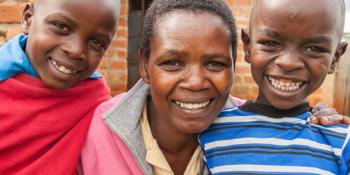
ShelterTech Accelerator
ShelterTech Accelerator Program Comes to Kenya
Nairobi, Kenya (November 6, 2018) – Habitat for Humanity’s Terwilliger Center for Innovation in Shelter launches its first ShelterTech Accelerator Kenya program. It aims to facilitate housing markets better meet the needs of the low-income households and seeks to identify, nurture and accelerate Kenyan start-ups and growth-stage companies that are bringing shelter products and services to the low-income household market. The ShelterTech Accelerator Kenya, is implemented by BDO East Africa in partnership with Pangea Accelerator, a platform connecting African startups with international investment and expertise and Strathmore University’s @iBizAfrica. It is supported by the IKEA Foundation and the Hilti Foundation.
Access to adequate housing for low-income households is a critical development issue facing many countries around the globe. Kenya, where housing is recognized in the constitution as a basic human right, is no exception. Approximately 61 percent of Kenyans live in temporary shelter or extremely low-quality housing, affecting the overall well-being of households.
The ShelterTech Accelerator Kenya brings together entrepreneurs, government, corporations and development partners in mapping out and showcasing innovation in improving access to shelter. With over 94 applications from across Kenya, the program launch will unveil 30 start-ups and scale-ups selected to undergo a six-month acceleration program, giving them access to expertise, networks and the chance to win investment of up to US$50,000 into their business. The program will run from November 2018 until May 2019.
The program is making its Africa debut in Kenya, joining previous successful implementation in Mexico and current implementation in India.
“The ShelterTech Accelerator Kenya will contribute to the government of Kenya’s affordable housing pillar that aims to have at least 500,000 affordable homes in all major cities while ensuring 350,000 people get jobs in the housing sector by 2022,” says Jane Otima, Habitat for Humanity’s Associate Director for Market Systems and Entrepreneurship.
According to BDO’s CEO Sandeep Khapre, the ShelterTech Accelerator program is an innovative initiative that will facilitate achievement Habitat for Humanity Terwilliger Center for Innovation in Shelter’s objective to Build and Expand Inclusive Housing Markets.
According to Pangea’s CEO Jonas Tesfu, the startup ecosystem continent-wide, if given the right tools and means to invest is as vibrant as any other industry across the globe. Jonas notes that Africa remains very attractive as a new startup frontier, “Africans and non-Africans alike are looking to be part of its rapid development and are seeking ways to make this happen.”
Habitat for Humanity’s Terwilliger Center for Innovation in Shelter views the ShelterTech Accelerator as an efficient and structured mechanism of evaluating large numbers of ventures with the aim of building a strong entrepreneurial ecosystem in the still nascent affordable housing space. The program is making its Africa debut in Kenya, joining previous successful implementation in Mexico and current implementation in India.
About Habitat for Humanity
Driven by the vision that everyone deserves a decent place to live, Habitat for Humanity began in 1976 as a grassroots effort. The housing organization has since grown to become a leading global charity working in more than 70 countries. Habitat for Humanity works in partnership with families and individuals in need of a hand-up to build or improve a place they can call home. Learn more at www.habitat.org/emea or follow @HabitatEMEA
About Habitat’s Terwilliger Center
Habitat established the Terwilliger Center to work with housing market systems by supporting local firms to expand innovative and client-responsive services, products and financing so that households can improve their shelter more effectively and efficiently. Habitat can have exponentially more impact by improving systems that make better housing possible for millions more families. The role of the Terwilliger Center stays true to Habitat for Humanity’s original principles of self-help and sustainability by focusing on improving systems that enable families to achieve affordable shelter without needing ongoing direct support. To learn more, visit habitat.org/TCIS.